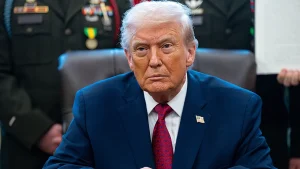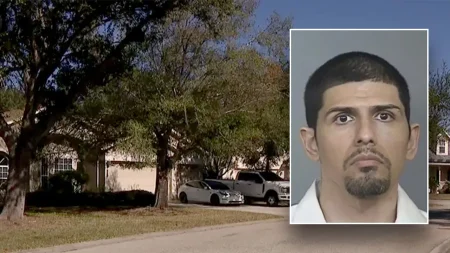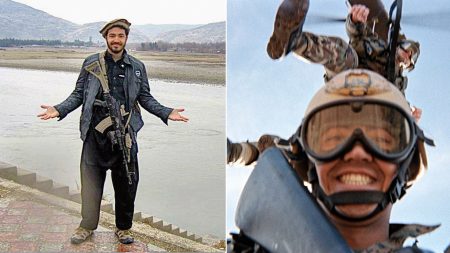Charlie Kirk Assassination Shocks Nation: A Time for Unity and Reflection
In a moment that has sent shockwaves across America’s political landscape, Turning Point USA founder Charlie Kirk was assassinated in what appears to be a politically motivated attack. Video footage released by authorities shows the assailant jumping from a rooftop after the shooting, as law enforcement continues an intensive manhunt. The tragic incident occurred amid heightened tensions in an already polarized election season, with authorities now revealing a surge in tips following the governor’s appeal for public assistance. This horrific act of violence has prompted reflection across partisan lines about the dangerous escalation of political rhetoric in America, with many calling for a return to civility in public discourse.
The tragedy has resonated deeply across political divides, with figures from all sides condemning the violence. CNBC reported that former President Trump, who received a warm welcome at a Yankees 9/11 commemoration game, had previously told the network he believed Kirk could one day become president. The View’s Whoopi Goldberg called the assassination “beyond devastating” for American discourse, while podcast host Joe Rogan appeared visibly shaken when discussing the killing, warning against those “celebrating” political violence. This rare moment of bipartisan agreement highlights the shock felt across American society, with Democratic strategist Doug Schoen writing, “I’m a Democrat, and Charlie Kirk’s murder must unite all Americans against violence.” Faith leaders have emphasized Kirk’s devotion to Christianity as central to his conservative activism, with pastors noting his message “will not be stopped” despite his death.
The timing of Kirk’s murder carries additional weight, occurring around the anniversary of the September 11th attacks when the nation traditionally comes together in remembrance of external threats. Some lawmakers have used the occasion to warn that domestic terrorism now represents America’s greatest security challenge. The Trump administration has announced swift action against foreign nationals who praise political killings, underscoring concerns about the potential normalization of political violence. Behavioral profilers discussing the case have broken down the extensive planning typically involved in high-level assassination attempts, noting the calculated nature of such attacks. In a particularly chilling revelation, media outlets have resurfaced footage from earlier this year in which Kirk himself warned of a growing left-wing “assassination culture” months before becoming its victim.
Meanwhile, regular political conflicts continue against this sobering backdrop. The Senate has seen Republicans trigger the “nuclear option” to break what they describe as a Democratic blockade of Trump nominees. In Chicago, immigration tensions have flared as Border Patrol implements a crackdown in the sanctuary city, drawing criticism from the Illinois governor. A relative of a 9/11 firefighter has publicly called out a politician for allegedly failing to condemn extremist rhetoric. These ongoing partisan battles stand in stark contrast to the momentary unity in mourning Kirk’s death, raising questions about whether this tragedy might inspire lasting changes in how Americans engage politically with one another.
Beyond politics, the nation continues its regular rhythms. Sports fans watched the Green Bay Packers defeat the Washington Commanders to start their season 2-0, while Yankees manager Aaron Boone described Trump’s visit to the team on the 9/11 anniversary as a “special night.” In business news, reports suggest Paramount Skydance is preparing a bid to purchase Warner Bros. Discovery, potentially reshaping the media landscape. These normal activities provide an almost surreal counterpoint to the assassination, demonstrating how even in moments of national trauma, much of American life proceeds unchanged – perhaps reflecting both the resilience and compartmentalization that characterizes modern society.
The murder of Charlie Kirk represents a dangerous escalation in America’s political environment that demands serious reflection. While public figures across the spectrum have condemned the violence, the question remains whether this tragedy will prompt meaningful change in how Americans engage with politics and with each other. Kirk’s wife and children now face an unimaginable loss, with public figures like Demi Tebow, wife of NFL player Tim Tebow, calling for prayers for the family. As behavioral expert Gad Saad described the situation, there has been a “disheartening normalization of political violence” in America. The challenge for citizens across the political spectrum is to reject this normalization and recommit to democratic values that allow for passionate disagreement without dehumanizing opponents. How America responds to this moment may well determine whether this assassination remains an aberration or signals a darker turn in the nation’s political life.











